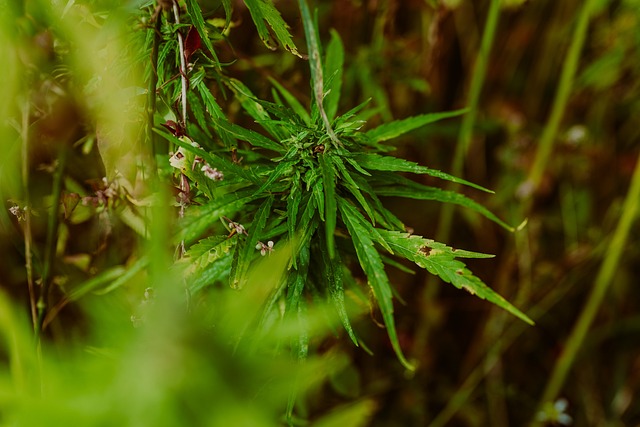Delta-9-tetrahydrocannabinolic acid (THCA) and cannabidiol (CBD), both found in the Cannabis sativa plant, are gaining attention for their potential to improve sleep quality. THCA, a non-psychoactive cannabinoid, differs from its psychoactive counterpart THC and does not induce mind-altering effects unless heated. It interacts with the endocannabinoid system, particularly the CB1 and CB2 receptors, offering a potential non-intoxicating method to enhance sleep without the associated high of THC or the psychoactive effects of CBD. Studies suggest that THCA may benefit sleep by potentially modulating REM sleep and reducing wake time, which could be advantageous for those with sleep disturbances. On the other hand, CBD is recognized for its calming and relaxing properties that can aid sleep indirectly by alleviating anxiety and pain. The choice between THCA and CBD for sleep enhancement depends on individual preferences and responses, highlighting the need for personalized approaches. As research continues to elucidate the distinct effects of THCA versus CBD, consumers and healthcare providers are presented with more informed options for natural sleep treatments. It’s important for individuals considering these cannabinoids for sleep to consult with healthcare professionals to determine the best option tailored to their specific needs.
Explore the nuanced world of THCA, the precursor to CBD, and its potential impact on sleep quality. This in-depth article sheds light on the botanical intricacies of Indacloud thca flower, its role within the cannabis plant’s entourage effect, and how it stands out from other cannabinoid forms. Delve into a comparative analysis of THCA versus CBD for sleep, supported by scientific evidence, therapeutic properties, and practical usage guidelines. Understand the legal considerations surrounding THCA flower, and learn about cultivation to ensure you have a safe, pure, and effective product tailored to your nightly routine for better slumber. Join us as we navigate the complexities of THCA flower, its benefits, and user experiences for optimal sleep enhancement.
- Understanding THCA: The Natural Precursor to CBD
- THCA Flower: A Botanical Overview
- The Entourage Effect: THCA’s Role in the Cannabis Plant
- THCA vs CBD for Sleep: A Comparative Analysis
Understanding THCA: The Natural Precursor to CBD
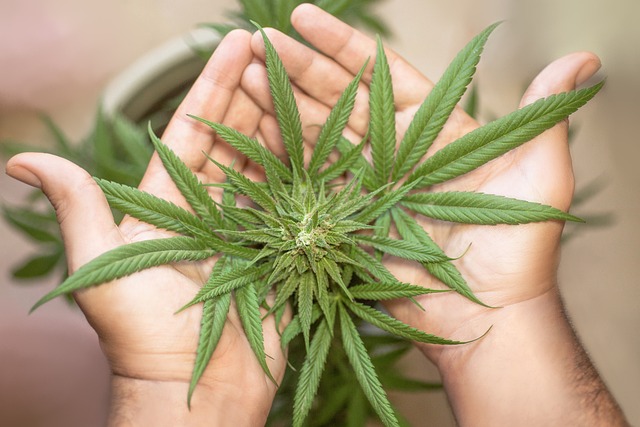
delta-9-tetrahydrocannabinolic acid (THCA) is a naturally occurring cannabinoid found in the Cannabis sativa plant. Unlike its well-known psychoactive counterpart, THC, THCA remains non-psychoactive until it is exposed to heat, which then converts it into THC. This precursor molecule has garnered attention for its potential therapeutic benefits, including its effects on sleep regulation. Research suggests that THCA may interact with the body’s endocannabinoid system, influencing sleep patterns without the psychoactive effects associated with THC.
In the context of sleep, THCA vs CBD comparisons have emerged, highlighting their distinct effects and potential uses. CBD (cannabidiol) is another prominent cannabinoid known for its calming and relaxing properties, which can indirectly promote better sleep by reducing anxiety and pain. While both THCA and CBD show promise for sleep disorders, such as insomnia, they act through different mechanisms within the body. THCA’s interaction with the CB1 and CB2 receptors may offer a unique approach to improving sleep quality without intoxication. This distinction is particularly significant for individuals seeking alternative treatments for sleep disturbances who wish to avoid mind-altering substances. Understanding the nuanced differences between THCA and CBD, especially in relation to their effects on sleep, can inform consumers and healthcare providers about which compound may be more suitable for an individual’s specific needs.
THCA Flower: A Botanical Overview
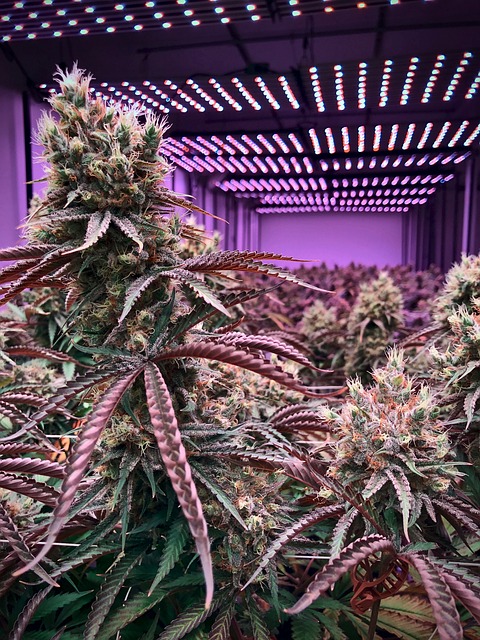
THCA, or Tetrahydrocannabinolic Acid A, is one of the many cannabinoids found in the Cannabis sativa plant. Unlike its well-known counterpart, CBD, THCA exists naturally in raw cannabis flowers and is non-psychoactive. It’s often converted to THC, the primary psychoactive component of cannabis, when heated. However, recent research has begun to shed light on THCA’s potential benefits, particularly in the realm of sleep wellness. Unlike THC, THCA interacts with the body’s endocannabinoid system without the psychoactive effects, making it a compelling alternative for individuals seeking relaxation and better sleep without impairment.
The botanical structure of THCA-rich flowers is complex, with trichomes, the resin glands that produce cannabinoids like THCA, dotting the surface of the flower. These flowers can vary greatly in appearance and potency based on strain genetics, cultivation conditions, and maturity at harvest. THCA flowers are often consumed through smoking or vaporizing, where they can rapidly enter the bloodstream upon heating. Alternatively, they can be infused into edibles, though this method results in lower bioavailability due to the digestion process. The therapeutic potential of THCA flowers for sleep is an area of growing interest, with anecdotal and some preliminary studies suggesting that it may offer a restful night’s sleep without the grogginess associated with some cannabinoid products. As research continues, the understanding of THCA’s effects, particularly in comparison to CBD for sleep, will become clearer, offering insights into its place within holistic sleep health strategies.
The Entourage Effect: THCA’s Role in the Cannabis Plant
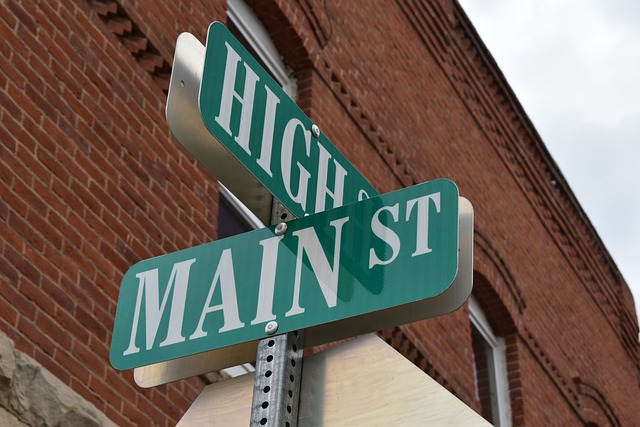
THCA, or tetrahydrocannabinolic acid, is a cannabinoid found abundantly in raw cannabis plants and is precursor to THC, the psychoactive compound well-known for its effects on mood and perception. The role of THCA within the cannabis plant and its interaction with other cannabinoids, terpenes, and flavonoids is pivotal, as it contributes to what’s known as the Entourage Effect. This phenomenon describes the enhanced effect produced when THCA works in tandem with other plant compounds rather than in isolation.
In the context of sleep, THCA vs CBD comparisons reveal distinct differences in their interactions with the body’s endocannabinoid system. While CBD is often praised for its calming and relaxing properties, which can indirectly aid in achieving restful sleep by promoting a state of homeostasis, THCA has its unique advantages. Research suggests that THCA may offer sedative effects without the psychoactive impact associated with THC. This makes it particularly appealing for individuals seeking assistance with sleep disorders or simply looking to improve their sleep quality without mind-altering consequences. The Entourage Effect further amplifies these benefits by creating a synergistic interaction between cannabinoids and terpenes, enhancing the overall efficacy and potency of the plant’s medicinal properties. This holistic approach is believed to be more beneficial than using any single compound alone, offering a promising avenue for sleep improvement and wellness.
THCA vs CBD for Sleep: A Comparative Analysis
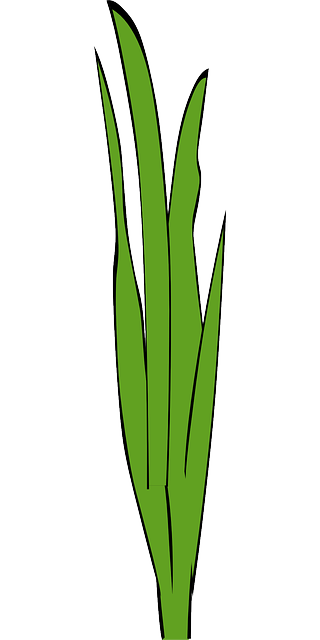
THCA, or tetrahydrocannabinolic acid, and CBD, or cannabidiol, are two naturally occurring compounds found in the Cannabis sativa plant that have garnered attention for their potential therapeutic properties. When it comes to addressing sleep disorders or improving sleep quality, both THCA and CBD offer distinct benefits. THCA is the raw form of THC (tetrahydrocannabinol), which, once decarboxylated through heating, becomes the psychoactive substance known as THC. In its acidic form, THCA has been observed to have non-psychoactive effects that may be beneficial for sleep regulation. Preliminary research suggests that THCA may interact with the body’s endocannabinoid system, influencing sleep architecture and promoting more restful sleep by potentially enhancing REM sleep and reducing wake time.
CBD, on the other hand, is a non-psychoactive compound that has been widely studied for its effects on various health conditions, including sleep issues. Unlike THCA, CBD does not induce a high but interacts with the body’s endocannabinoid system through various receptors, such as CB1 and CB2. Its potential benefits for sleep are manifold; it may help reduce anxiety and pain, which are common barriers to achieving restful sleep. Additionally, studies indicate that CBD might contribute to a more stable and longer duration of sleep by reducing the time spent in REM sleep, where most dreams occur and disturbances are often experienced. When considering THCA versus CBD for sleep, individuals may prefer one over the other based on their specific needs and how they interact with these compounds. It is always recommended to consult healthcare professionals before incorporating THCA or CBD into a sleep regimen.
In recent studies, the potential benefits of THCA, particularly in relation to sleep disturbances, have garnered significant attention. As explored within this article, THCA’s role within the cannabis plant, its natural precursor to CBD, offers a compelling perspective on the entourage effect and how different cannabinoids can influence our well-being. The botanical profile of THCA flower underscores its unique position in the realm of therapeutic applications. When considering THCA versus CBD for sleep, it’s clear that each compound presents distinct advantages, with THCA showing promise in preliminary research. As the body of evidence continues to expand, so too does our understanding of how these cannabinoids can complement one another. It is through this lens that we can appreciate the nuanced effects of cannabis and its derivatives, paving the way for more informed and effective uses in promoting restful sleep.
